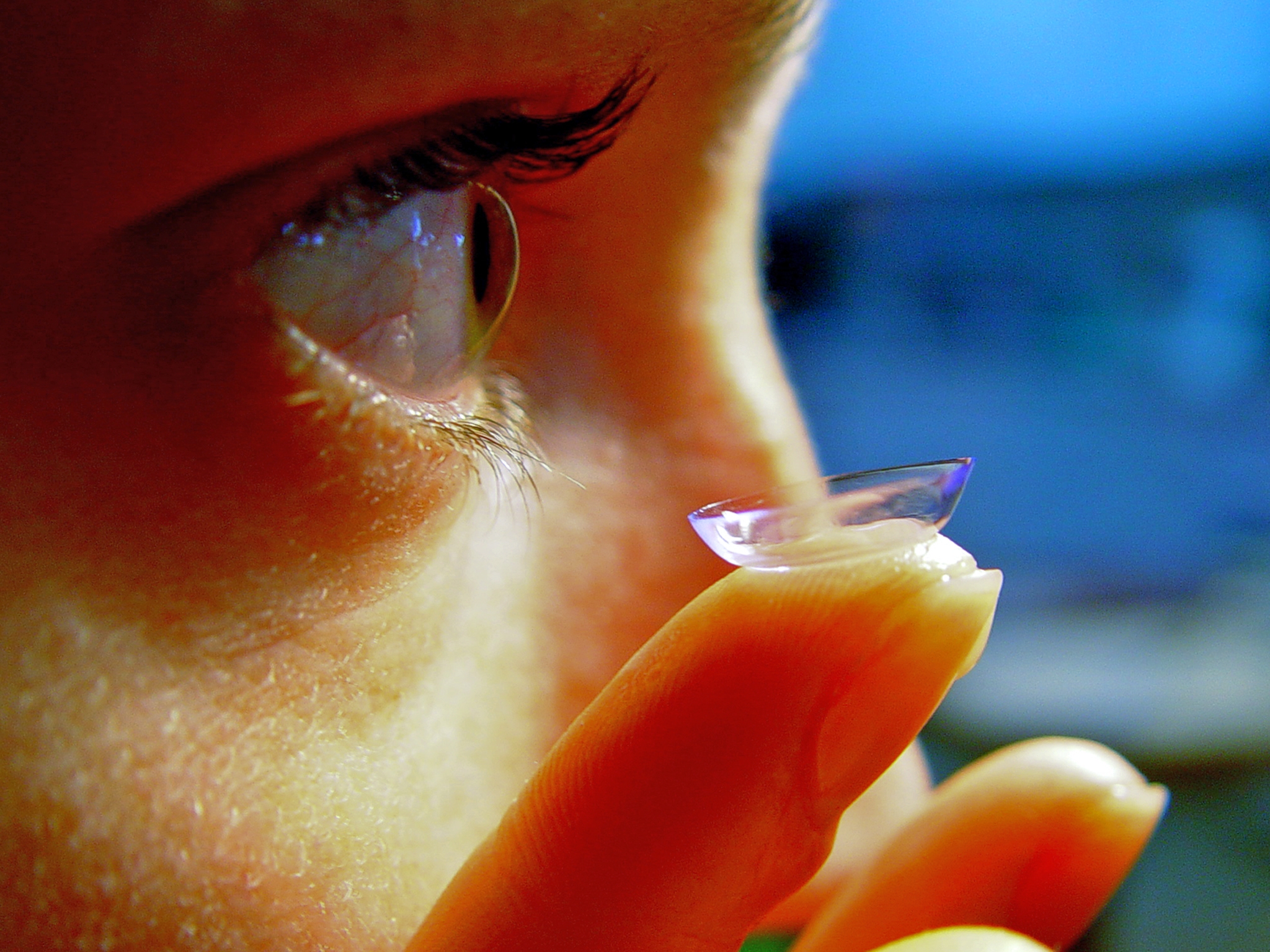Jodie Vanderslot | Health Editor
Featured Image: Let’s focus on the big picture. | Courtesy of Wikimedia Commons
For those with less than perfect vision, things can be a little fuzzy. Seeing the world through bordered rims, or sometimes a thick sheet of glass, can prove to be frustrating at times. Many prescription-glasses wearers find themselves—at some point or another—testing the waters of contact lenses.
Near-sightedness (myopia) refers to blurred vision from a far range, while far-sightedness (hyperopia) is blurred vision at close range. Astigmatism refers to a blurred vision both close up and from a far distance.
Similar to glasses, contact lenses have the potential to correct these vision problems. While contacts are becoming more common, there is an increasing debate on whether or not contact lenses should be worn daily.
Opticians caution users about everyday use, as contact lenses prevent oxygen and moisture from reaching the eye. Over time, this can cause issues such as minor infection, restriction of the blood vessels that reach the cornea, and, in severe cases, blindness. The central concern with contact lenses is improper use.
“On a daily basis, we have seen different effects when students misuse contact lenses. It could range from a minor infection on a short-term basis, to blindness from long-term misuse. Other major effects would be the restriction of blood vessels that supply oxygen to the cornea, preventing the eyes from breathing.
“Another effect would be the formation of scar tissue on the eye. These are examples of minor effects, but more severe cases could lead to blindness or infections,” says Muntazir Nasser, optician and manager of A&F Opticians.
The general recommendation by opticians is that students use contact lenses periodically, based on their lifestyle and the activities they participate in, and that the utilization of contact lenses should be limited to only a few times per week.
“For student life, we recommend using contact lenses or glasses for a certain purpose. One is not replaceable by the other. Contact lenses are used by people who play certain sports or require it for certain lifestyle purposes, where they would not be able to wear glasses. We do not recommend it as a daily option or a replacement for glasses because it does have negative effects on the eye as well,” adds Nasser.
There are two main options for contact lenses—dailies and monthlies. With dailies, you would remove the lenses at night and throw them away, opening a new pair for your next use. With monthlies, you would remove, clean, and store them before bed, and they are thrown out at the end of the month.
The costs for monthly or daily contact lenses is not concrete because factors such as the amount of contact lenses needed, the type of contact lenses necessary, the measurements of those lenses, and the rebates added on to those lenses all affect the price.
In comparing daily disposable contacts to monthly ones, dailies tend to be marginally more expensive. However, as it is not recommended for contacts to be worn for extended periods of time—or as the sole means of improving one’s vision—it may be more inexpensive to purchase the dailies, which can be stretched out for longer than a month-long period. The more often you replace your contact lenses, the healthier and more comfortable your eyes will be.
Contacts allows individuals to maintain healthy vision and a natural appearance. The difference between colour and non-coloured contact lenses is that coloured contact lenses will have additional layers of colour where the iris would be. Again, this is not recommended for daily use, as the additional layers of coloured lenses prevent moisture and oxygen from reaching the eyes.
“It is better to not go with the coloured option. It is just for aesthetics purposes,” says Nasser.
A&F Opticians is partnered with the YFS Health and Dental Plan to accommodate students at York. The YFS Health and Dental Plan offers $100 every 24 consecutive months, based on the date of first paid claim for prescription eye glasses, aesthetic contact lenses, or medically necessary contact lenses.
“There isn’t a big margin for contact lenses because we keep our prices competitive with online markets and other competitors, like Walmart and Costco. For prescription glasses, we offer lower prices and a 15 per cent discount on a complete set of glasses, frame, and lenses,” adds Nasser.
With files from Abdeali Saherwala

